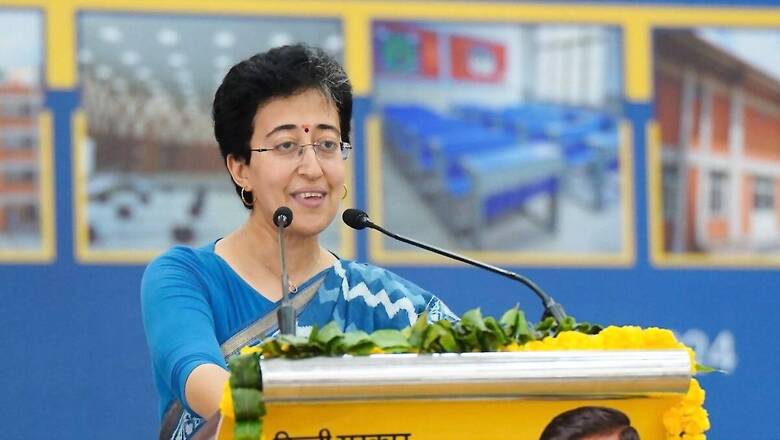
views
In a historic move, Atishi Marlena Singh has been appointed as the new Chief Minister of Delhi, making her the third woman to hold the position. She follows Sushma Swaraj, Delhi’s first female Chief Minister, and Sheila Dixit, who was the second. Atishi, an MLA representing the Kalkaji assembly seat, is a trusted ally of the Aam Aadmi Party chief and former Chief Minister, Arvind Kejriwal.
Atishi’s Early Education
Born on June 8, 1981, Atishi comes from an academic family, with both her parents, Vijay Singh and Tripta Singh, serving as professors at Delhi University. She received her early education at Springdales School in Delhi before completing her master’s degree at the prestigious St. Stephen’s College, Delhi University.
Atishi Earned Master’s Degree From Oxford
Atishi earned a Masters Degree in History at Oxford University in 2003 through the Chevening Scholarship. Later in 2005, she went for educational research as a Rhodes Scholar at Magdalen College, Oxford. Atishi also has an experience in teaching. Before her involvement in politics, she taught History and English at Rishi Valley School in Andhra Pradesh. With her appointment, Atishi becomes not only the third woman Chief Minister of Delhi but also the second woman to lead a state in India, following West Bengal’s Mamata Banerjee.
Chaudhary Brahm Prakash: First CM Of Delhi
In 1952, elections were held for the first time in Delhi and Chaudhary Brahm Prakash of Congress was elected as the first Chief Minister of Delhi. Although Deshbandhu Gupta was announced as CM after the elections, however, Prakash was made the CM as the former died in a plane crash. Chaudhary Brahm Prakash, born on June 16, 1918, served as the CM of Delhi from March 17, 1952 to February 12, 1955.
No CM In Delhi For Over 35 Years
In 1956, the Delhi Assembly was dissolved and it was declared a Union Territory and the post of Chief Minister of Delhi was abolished. In 1966, Delhi was given the status of a Metropolitan Municipality. In the year 1991, it was declared the National Capital Territory by amending the Constitution. After delimitation, the assembly was constituted again. In 1991, the 69th constitutional amendment allowed Delhi to have a 70-member assembly. 12 seats were reserved for Scheduled Castes.



















Comments
0 comment